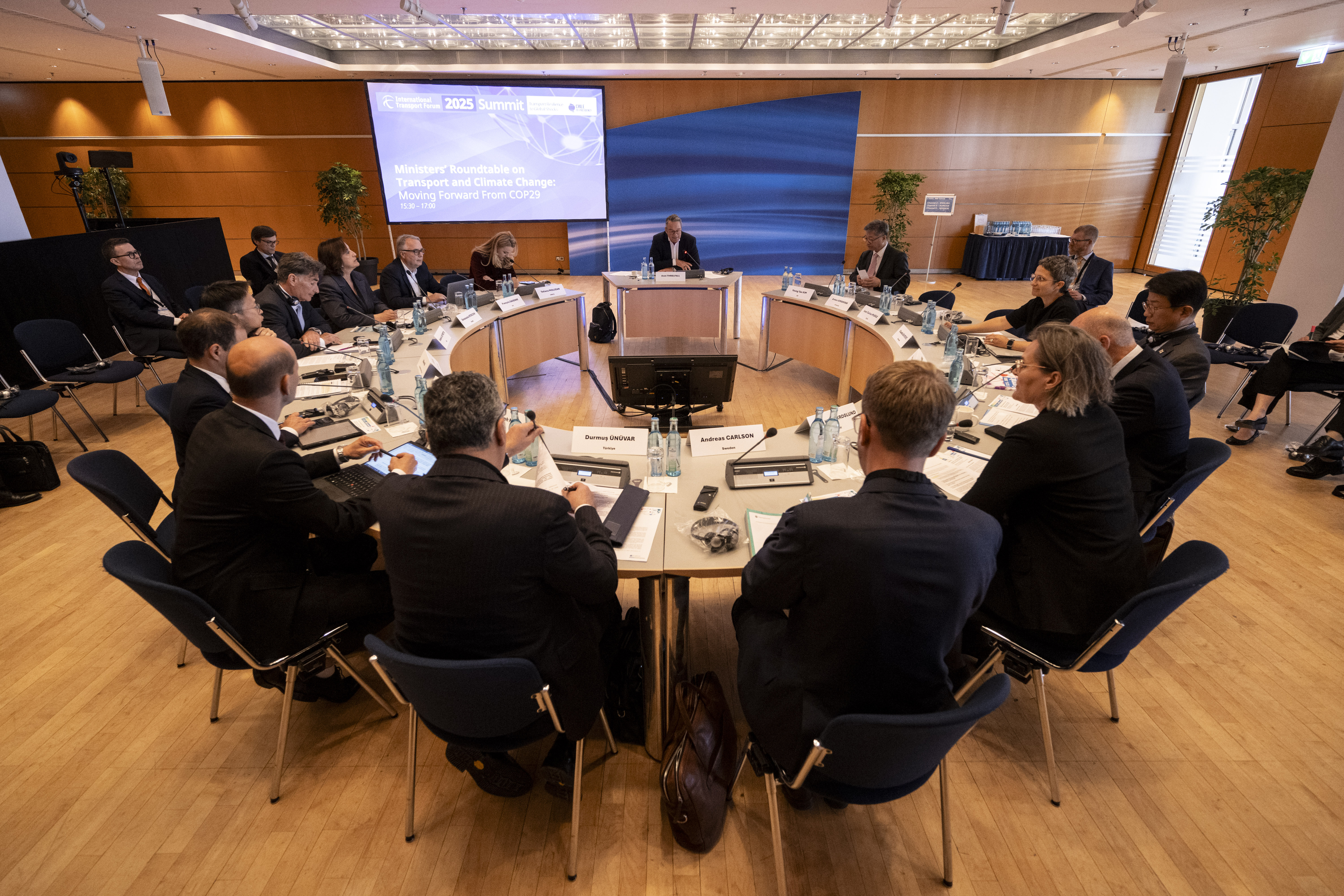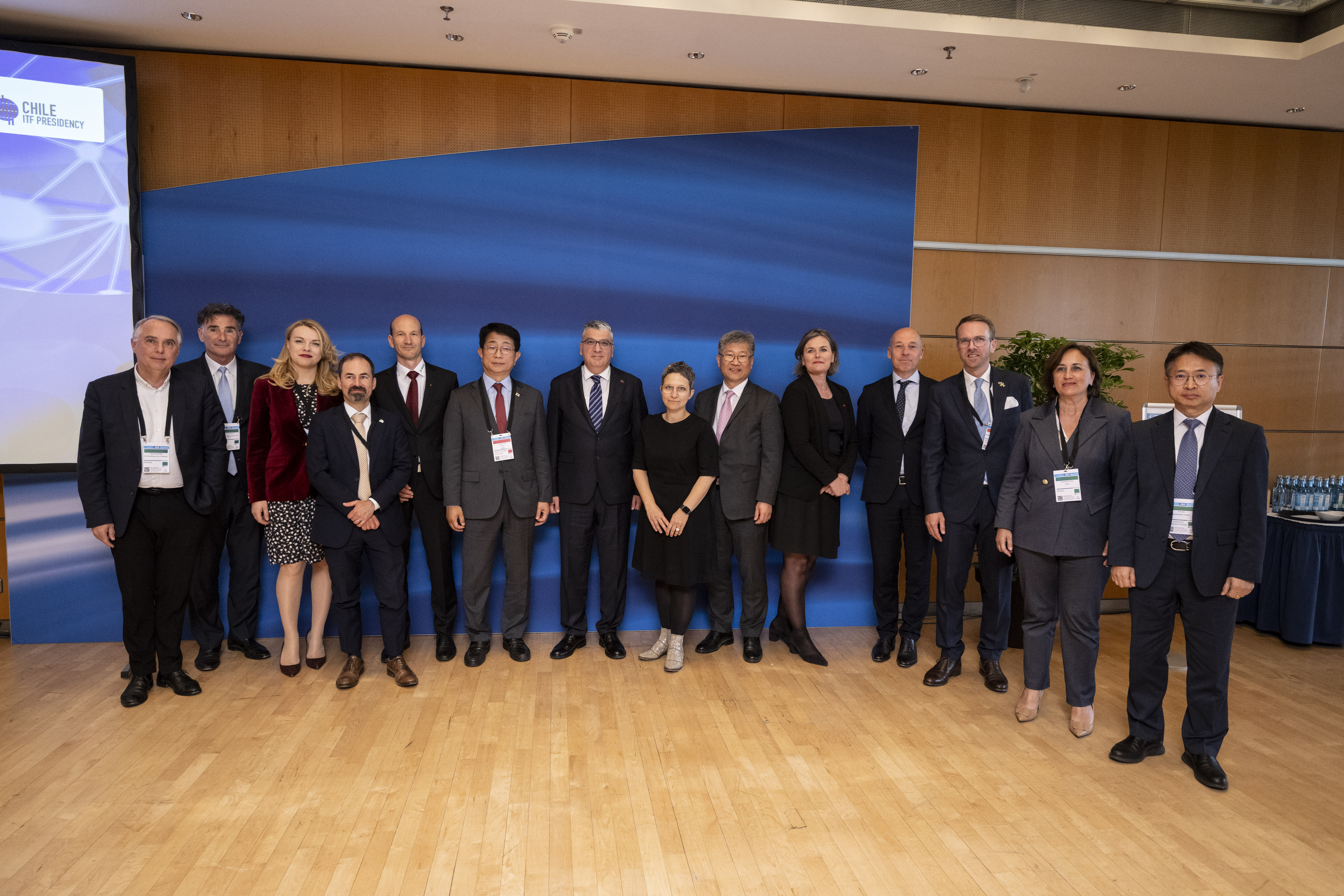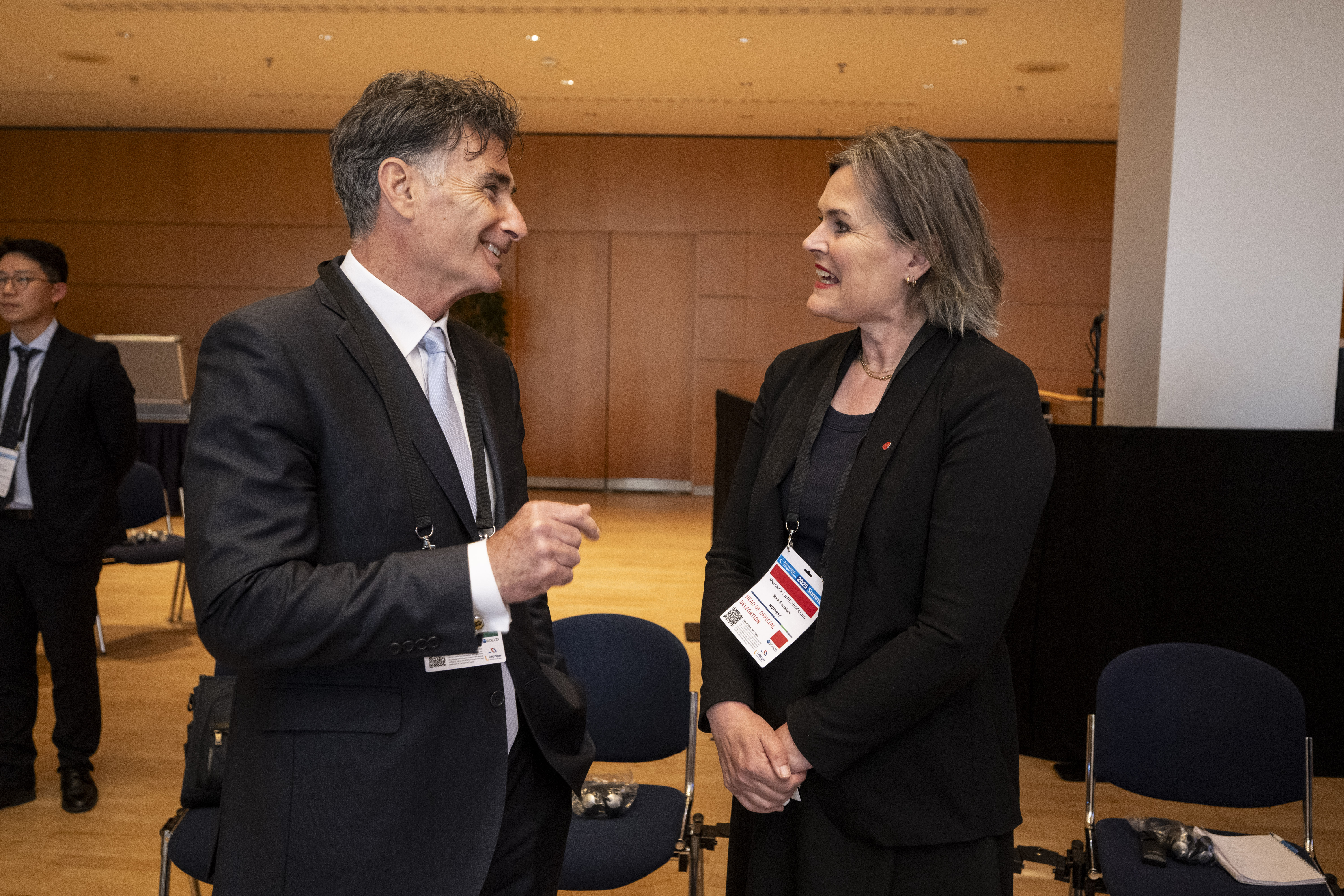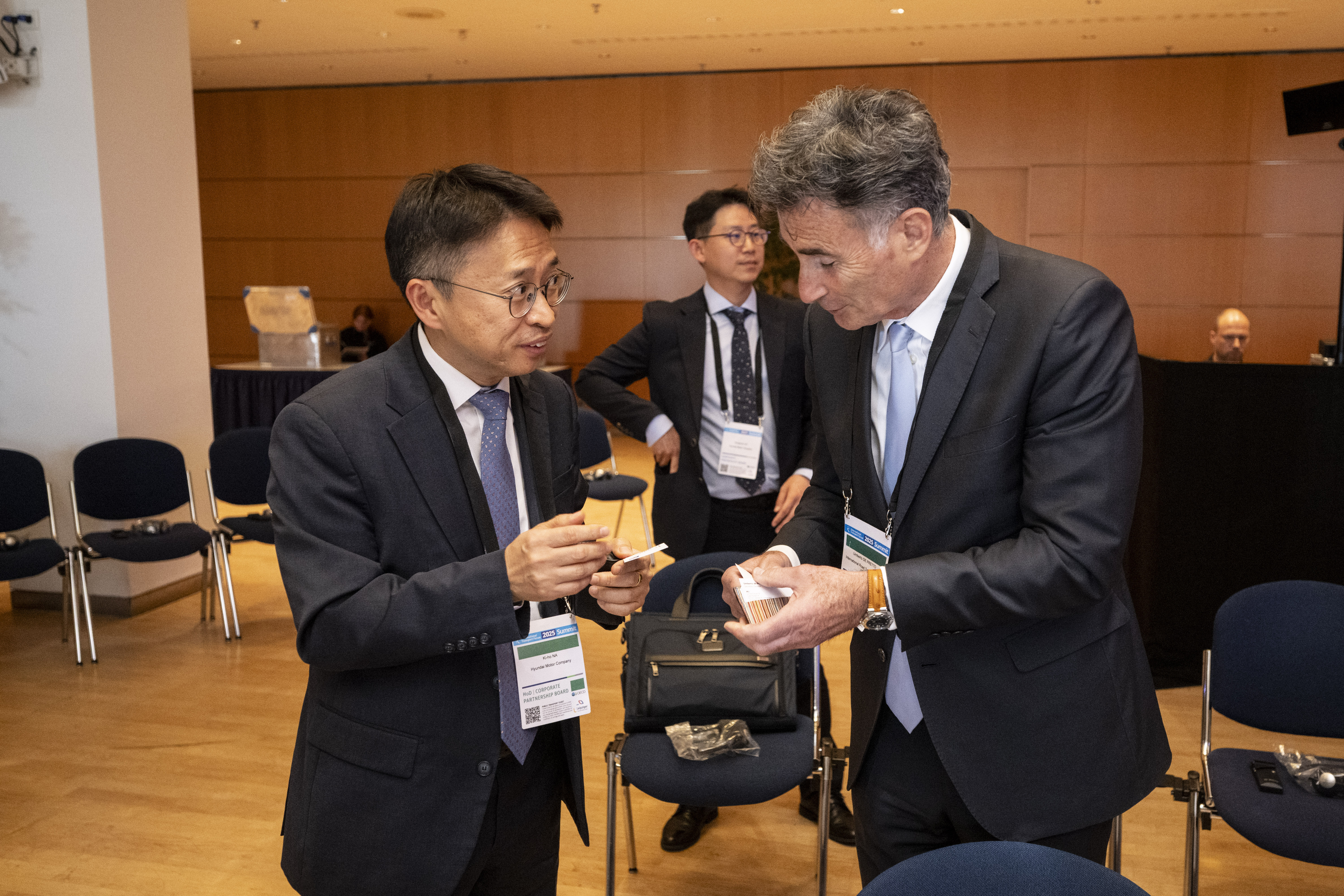The Secretary General of IRU, the world road transport organisation, outlined a pragmatic decarbonisation vision at a special closed-door ministers’ roundtable yesterday in Leipzig. Today, he charted the key to a resilient workforce primed for emergency preparedness.
At the International Transport Forum (ITF) Summit’s “Ministers’ Roundtable – Transport and climate change: Moving forward from COP29” yesterday in Leipzig, Germany, IRU set out how governments and the industry can boost the decarbonisation of road transport while preserving its versatility and efficiency.
IRU Secretary General Umberto de Pretto said, “The commercial road transport sector is steadfast in its commitment to decarbonise by 2050. For that, we can’t wait until 2050, or even 2030, and then press a ‘magic button’. We need to act now. Greening transport is a marathon, not a sprint. We will only win the race with pragmatism.”
“Proven, cost-efficient solutions already exist. More efficient vehicles, operations and drivers can cut 50% of the industry’s CO2 emissions by 2050. Eco-trucks alone can reduce emissions by about 30%. A steady transition to new alternative fuels and the vehicles, infrastructure and business models needed to run them will cut the remaining 50%,” he added.
In a passenger transport case from last year, IRU and the FIA jointly trained 5,000 bus and taxi drivers at COP29 in Baku, Azerbaijan. The training significantly reduced fuel consumption, with the top performer cutting emissions by 32%.
On the goods side, recent real live operations have shown that the TIR transit system slashes CO2 emissions by up to 90% at border crossings.
Umberto de Pretto also highlighted the importance of coordinated regional approaches in the closed-door ministerial session.
“Decarbonisation strategies must reflect local needs, but a patchwork of uncoordinated policies creates unpredictability and unfair competition. We need structured coordination between regional institutions, governments and cities,” said Umberto de Pretto.
“Looking forward to the Decade for Sustainable Transport, governments should set targets and then leave it to the industry to reach them. As called for in the UN resolution heralding the Decade, the ratification and implementation of UN conventions should be our targets,” he added.
The roundtable included Andreas Carlson (Sweden’s Minister for Infrastructure and Housing), Cecile Knibe Kroglund (Norway’s State Secretary), Durmuş Ünüvar (Türkiye’s Deputy Minister of Transport and Infrastructure), Juan Carlos Muñoz (Chile’s Minister of Transport and Telecommunications), Kees van der Burg (the Netherlands’ Vice-Minister for Mobility Ministry of Infrastructure and Water Management), Sangwoo Park (South Korea’s Minister of Land, Infrastructure and Transport), Christoph Nolte (Dekra’s Head of Service Division Vehicle Inspection and Executive Vice President), Emanuela Stocchi (PIARC’s President), Giorgio Travaini (EU Rail’s Executive Director), Jessica Sandstrom (Volvo Trucks’ Senior Vice President), Kiho Na (Hyundai Motor Group’s Vice President of Policy Coordination Office), Tatiana Molcean (UNECE’s Executive Secretary), and Young Tae Kim (ITF’s Secretary General).




